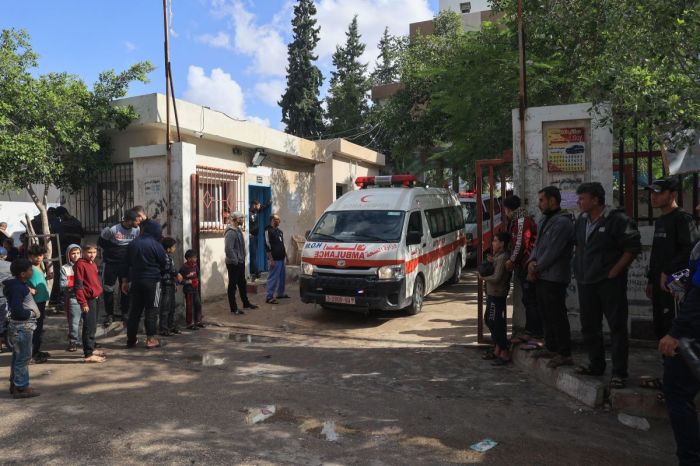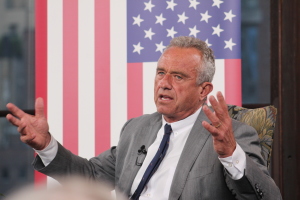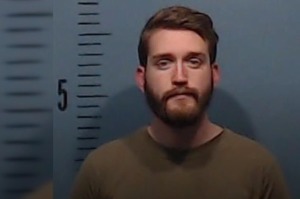UMC executive says denomination's response to Israel-Hamas war 'weak and timid'

A top United Methodist Church executive believes that the denomination's response to the war between Israel and Hamas in the Gaza Strip has been "weak and timid," suggesting that Israel is guilty of "genocide."
Roland Fernandes, chief executive at United Methodist Global Ministries and the United Methodist Committee on Relief, recently took issue with the UMC response to the conflict during a meeting of the boards of UMC Global Ministries and the General Board of Higher Education.
"Church responses, especially the UMC, have been very weak and timid," Fernandes said, as quoted by the UMC's news service, UM News.
"We encourage all those in positions of authority to establish an immediate ceasefire so that those who are starving can be fed. As a Christian humanitarian organization, we ask that humanitarian organizations have full, immediate and safe access to Gaza."
Fernandes said in an interview after the meeting that "something stronger needed to be said" about the humanitarian crisis in Gaza and that "the term 'genocide' should be a descriptor we are using."
"I'm in touch with our missionary on the ground there," he told UM News. "There's just so many people without food and starvation. It's just quite incredible, and I don't think the story is told clearly enough."
Earlier this month, the UMC Council of Bishops released a statement demanding "an immediate and permanent cease-fire in the conflict between Hamas and Israel in Gaza and pledge our prayers and commitment to work for a durable peace for Israelis, Palestinians, and all in the region."
"The ability of aid organizations to attend to the critical needs of the victims of this prolonged war has also been sharply limited by the lack of meaningful negotiations," stated the bishops.
"It is estimated that 1.8 million Palestinians have been displaced, their homes and communities destroyed. The United Nations estimates that more than half a million people are living under 'catastrophic levels of deprivation and starvation.'"
The bishops believe that "the current military strategy of the Israeli government, supported by U.S. weapons transfers and aid, will only lead to the destruction of the entire Gaza Strip, an unconscionable death toll that grows daily, the perpetuation of one of the world's longest conflicts, and the proliferation of increased enmity between Israelis and Palestinians."
"The lack of a true cease-fire after more than five months of this deadly conflict compels us to raise our voices now," the UMC leaders added. "We pledge our prayers and commitment to work for a durable peace, an end to the violence and the release of the hostages."
On Oct. 7, Hamas, a terror group that has controlled the Gaza Strip since 2007, launched a surprise attack on Israel, killing around 1,200 people, mostly civilians, and abducting about 240 hostages.
In response, Israel launched a military offensive in Gaza with the aim of eradicating Hamas and securing the release of the hostages. The Hamas-run Gaza Health Ministry states that over 30,000 Palestinians have been killed since the war began. The ministry figures do not distinguish between militants and civilians.
In late February, Israel Defense Forces said at least 12,000 Hamas fighters were killed since the war began. Israel has maintained throughout the war that its fighters do the best they can to avoid civilian casualties in a complex urban environment in which Hamas has been accused of using civilians as human shields.
While Hamas' death toll numbers are often cited by international media and world leaders, some have questioned the validity of those figures given that civilian deaths caused by Hamas' own misfired rockets have been blamed on Israel. The New York Post editorial board called Hamas' death toll numbers "pure fiction" given a sense of legitimacy by media outlets and global leaders who don't scrutinize the data.
Earlier this month, a senior Biden administration official said that Hamas is holding up negotiations for a six-week ceasefire deal by refusing to release a certain number of vulnerable hostages. Israeli defense officials have claimed that Hamas has stolen aid supplies designated to help those displaced by the war and selling them at marked-up prices on the black market.
At present, Israeli forces are on the cusp of attacking Rafah, Gaza's southernmost city, where hundreds of thousands of people are sheltering amid the conflict. Israel Prime Minister Benjamin Netanyahu contends that Israeli forces can't achieve "total victory" over Hamas unless they enter Rafah, which Israel says is Hamas' last major stronghold.
Some have expressed concern that such an offensive could lead to large numbers of civilian deaths.
The Israeli military says that operations in Gaza have dismantled 18 of Hamas' 24 battalions, according to The Associated Press, which notes that Hamas is beginning to regroup in northern Gaza and continues to launch attacks.




























